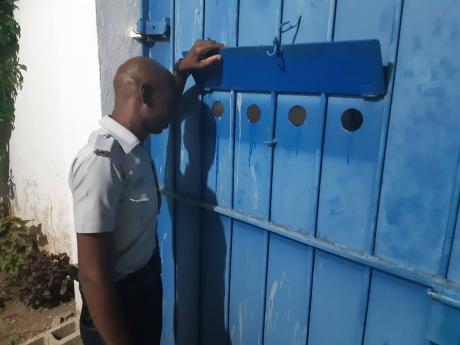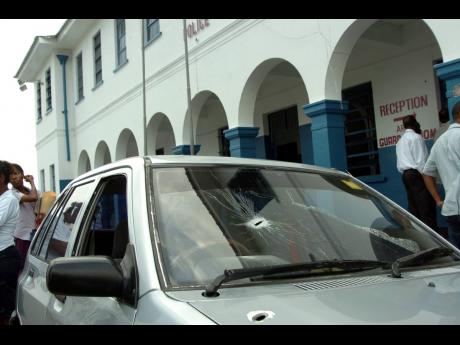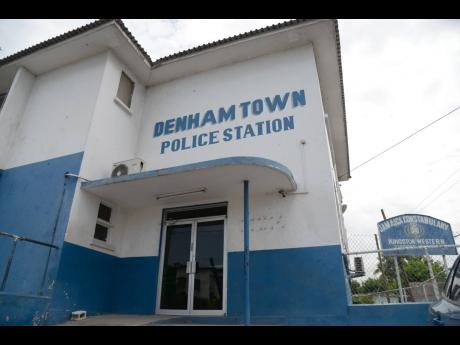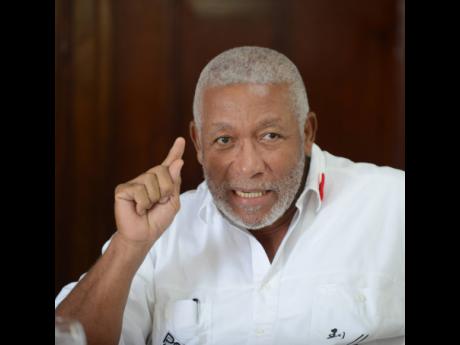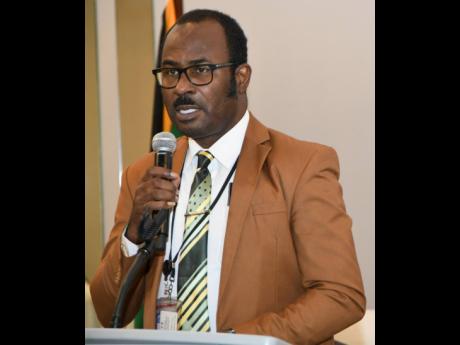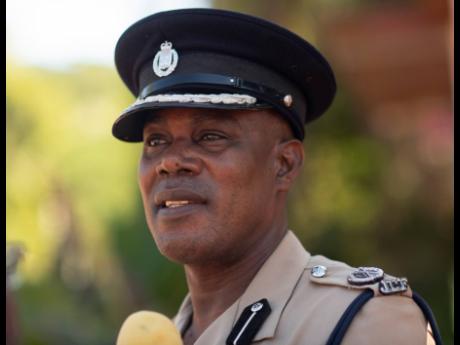‘Police have to protect themselves’
Senior cops support practice of some stations locking up after dark, but say public will always be served
The horror stories pop up on social media from time to time, but senior members of the Jamaica Constabulary Force (JCF) are dispelling reports that frantic late-night calls for help to emergency lines and police stations are being turned away or redirected in times of crises.
That would be preposterous, they told The Sunday Gleaner as part of a multi-parish probe into the responsiveness of the police at a number of stations and the constabulary’s emergency lines after dark.
Seventeen police stations across the Kingston Central, St James, St Catherine South, St Andrew South, and St Andrew Central divisions were visited by the news team after midnight in the past month.
While the police at all stations were responsive between midnight and 2 a.m., members of the public wishing to make a speedy report in some of the toughest communities can expect locked grilles, dark stations, and questionable stares upon approach to these facilities. It may take up to two minutes for their calls to be answered, and another two minutes for inquiries and the locks to be unbolted.
In some rural and remote police stations, outside the more crime-infested divisions visited by the news team, reports are that the service is lacking.
The official protocol on the practice of locking the doors of some stations after hours is unclear, but it appears to be the norm among the limited and mostly female staff observed at some locations. Security is the foremost priority, they explained.
Assistant Police Commissioner Gary Griffiths, head of the police Area Five, which encompasses the St Andrew North, St Catherine North and South and St Thomas divisions, said taking such precautions is reasonable in some high-threat areas.
“Some police stations are allowed to close their doors after a certain time. But that doesn’t mean that the station is closed to the public. All police stations are open 24 hours a day,” he stressed, citing a raft of attacks on police stations over the years, and the heightened alertness required in some areas at night.
“It is about securing yourself inside as well as the equipment. If you don’t do that then you can’t offer any service to the public,” offered Griffiths, who could not give an appropriate time for the closing of doors and grilles of some police stations observed during The Sunday Gleaner visits.
Some police officers were observed making logs, while others appeared to be awaking from a nap when the news team arrived. Griffiths was not too concerned about late-night naps by cops, stating, “I’m sure that as soon as a member of the public goes there they are served.”
A GREAT DISSERVICE
Superintendent Barisford Williams, who heads the Kingston Central Police Division, said closing station doors is not concerning, as most of the stations have been retrofitted with air-conditioning units. However, padlocking perimeter gates and shutters, and not responding to the public within a reasonable three-minute window would be problematic. Five of the stations The Sunday Gleaner visited were located in Kingston Central.
“If it is that when you go to a station you are not gaining access, then that is where I would have a problem,” he stressed, promising a probe into Kingston Central substations who reportedly padlock their perimeter gates and doors.
At the same time, he noted: “We still have to be mindful of the environment in which we work so we want to control access, especially because of how some of the stations are structured. They are right on the roadside.”
Williams gave examples of the Allman Town and Gold Street police stations, the latter, prior to a zone of special operation in January, was under high-threat warning as gang war raged last year. Such locations, he said, provide no buffer from the public and unscrupulous walk-ins.
“However, the place is to be kept open as long as possible,” he assured, adding that substations usually have patrols nearby that respond to any serious criminal threats. Some calls are radioed to the Kingston Central headquarters, and help dispatched by the officer in charge, he explained.
Hardley Lewin, former commissioner of police, blamed inefficient social planning as the fundamental reason for why such precautions must be taken by police at some stations.
“Many stations by way of their location or are so configured that officer safety can be compromised. Many of these stations are not purpose built as stations,” Lewin told The Sunday Gleaner. “We have done the police a great disservice by not planning for policing when we do development. We develop the communities and then all of a sudden realise we need a police station.
“So we find a house or something within the community and we stick the police in there. So whatever you get at the police station, whether it is locked, one has to look at its locations, surrounding and the community,” he said, noting also that the public should expect a response once they knock on the door.
Lewin said an appropriate response time for closure of station doors and response time from police to the public will be dependent on individual police stations and their circumstances.
“You expect the phone to be answered or you expect a voice from within to answer the knock at the door,” he said.
MULTIPLE ATTACKS ON STATIONS
Probably most notable of attacks on police stations came in 2005, when thugs, protesting the death of Tivoli Gardens enforcer Christopher ‘Chris Royal’ Coke, ambushed the Cross Roads Police Station, killing one policeman at that location and two others separately in less than 24 hours between May 4 and May 5.
Over the years, the Admiral Town, Trench Town, Vineyard Town and Mountain View police stations have also been attacked. Denham Town Police Station has been attacked multiple times, while arsonists have tried to firebomb the Rockfort Police Station, cops noted. At least four police stations were destroyed during the 2010 West Kingston incursion.
“I can remember in 1980 when every police station in the Corporate Area came under attack after the results of election night. Even the Mobile Reserve was under attack,” one retired policeman with more than 30 years’ service recalled.
Having led police teams at Mobile Reserve, Spanish Town and at the Constant Spring Police Station, he, too, supports locked doors at stations after dark.
“Many times police are busy doing logs late at night. Can you imagine looking up from your log book and you see an M16 in your face? What happens then?” he asked.
“You will be more alert if somebody knocks than if somebody just walks in and opens gunfire,” he reasoned.
For head of the Police Federation, Corporal Rohan James, lights turned off at police stations should not deter persons from going in to make reports.
“The police have to do that to protect themselves, and that is why Jamaica needs to appreciate the value of law enforcement because we are oftentimes serving beyond in giving service to the people. Many times these officers are operating below strength,” James told The Sunday Gleaner, noting that police in divisions across the island have been finding ingenious methods to protect themselves and others on duty.
“It is because we have to now extend our services in areas where it would not be characteristic of the police to be. We have to now be taking those spaces,” he said. “And it is for Jamaica to understand that national security is a priority and it requires that level of focus.”
[Additional reporting by Tyrone Reid]

